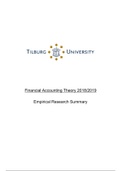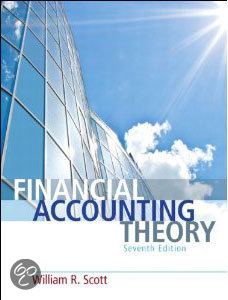Samenvatting
Summary Financial Accounting Theory 2018/2019 (Empirical Research in Accounting)
- Instelling
- Tilburg University (UVT)
Summary Financial Accounting Theory 2018/2019 covering all mandatory papers & Scott (Theory) additional reading. Imgur Hyperlinks refer to extended descriptive information. (From cohort 2019 onward this course is renamed Empirical Research in Accounting)
[Meer zien]





